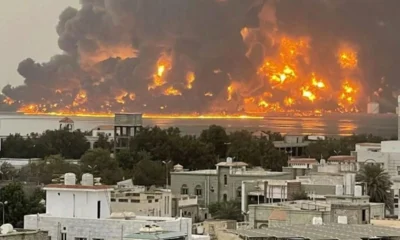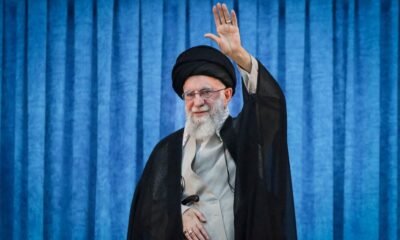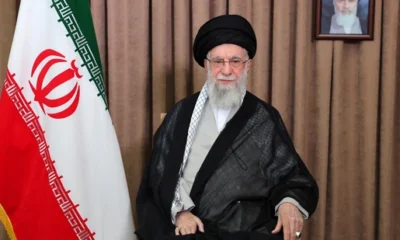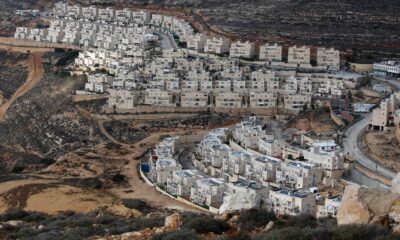Killing of 17 Palestinians in Gaza by Israeli forces on “Land Day” on Friday has triggered tension between Israel and Turkey. The Turkish President Recep Tayyip Erdogan has accused Israel’s PM Benjamin Netanyahu of being “a terrorist” after he rejected Ankara’s alleged “moral lessons”.
Reacting to Netanyahu’s response to his criticism, Erdogan said, “Hey Netanyahu! You are an occupier. And it is as an occupier that are you are on those lands. At the same time, you are a terrorist.”
While addressing a televised speech in Adana, southern Turkey on Sunday evening, Erdogan said, “What you do to the oppressed Palestinians will be part of history and we will never forget it. The Israeli people are uncomfortable with what you’re doing”.
While addressing his Justice and Development Party (AK Party) in Adan province, Erdogan said, “He says our soldiers are oppressing people in Afrin. Netanyahu, you are very weak, very poor. We are dealing with terrorists, but you are not. Because you are a terror state.”
Netanyahu, in one of his twitter post, said on Saturday, “The most moral army in the world will not be lectured to on morality from someone who for years has been bombing civilians indiscriminately”. He had criticized Erodgan earlier by calling him someone who “bombs Kurdish villagers.”
Erdogan’s comments came at a time when Israeli PM has, on Saturday, praised his troops for “guarding the country’s borders” and allowing “Israeli citizens to celebrate the [Passover] holiday peacefully”. He further said, “Well done to our soldiers”.
Several countries and rights groups have denounced the shooting of the Palestinian protesters, who were demonstrating in thousands along Gaza’s eastern border on Friday. Moreover, 1500 protesters were wounded when Israeli forces opened ammunition at protesters, used tear gas shells, rubber-coated steel bullets.
On Saturday, Turkish President Recep Tayyip Erdogan while addressing in Istanbul, said, “I strongly condemn the Israeli government over its inhumane attack”.
Meanwhile, UK’s opposition leader Jeremy Corbyn described the Israeli army’s use of force as “appalling” saying that “The UK government must make its voice heard on the urgency of a genuine settlement for peace and justice.”
Jordan and Qatar had also condemned the Israeli act. However US blocked the issuing of the UNSC statement that condemned Israel’s use of force. Not only that, US representative at UN, Walter Miller said “bad actors” were using the “protests as a cover to incite violence” and “endanger innocent lives.”
US echoed the Israel’s stance towards Friday demonstration, which blamed resistance group “Hamas” that governs the Gaza Strip, for the killings saying they used “violent riots to camouflage terror”.
UN and EU have demanded for independent probe into the use of live ammunition against Palestinians by the Israeli forces.
Meanwhile Tehran based Press TV reports on Monday that Palestinians have protested for the third day as part of the annual “March of Return” to commemorate Land Day, braving Israeli tanks and snipers.
The report further confirmed that at least 50 people were injured on Sunday as Israeli forces shot at Palestinian protesters in the city of Jabalia and some other areas in Gaza Strip. Several protesters suffered suffocation due to inhaling teargas.
Press TV reports that clashes have been ongoing since Friday when tens of thousands of Palestinians began a six-week march near the fence to demand their right to return their family homes in what is now called Israel.
Every year Palestinians observe Land Day on March 30 for commemorating the events on this day in 1976. In response to the Israeli government’s planned expropriation on Arab-owned land in northern Israel. Palestinian leaders called for a day of general strikes and protests against the confiscation of their lands.
























